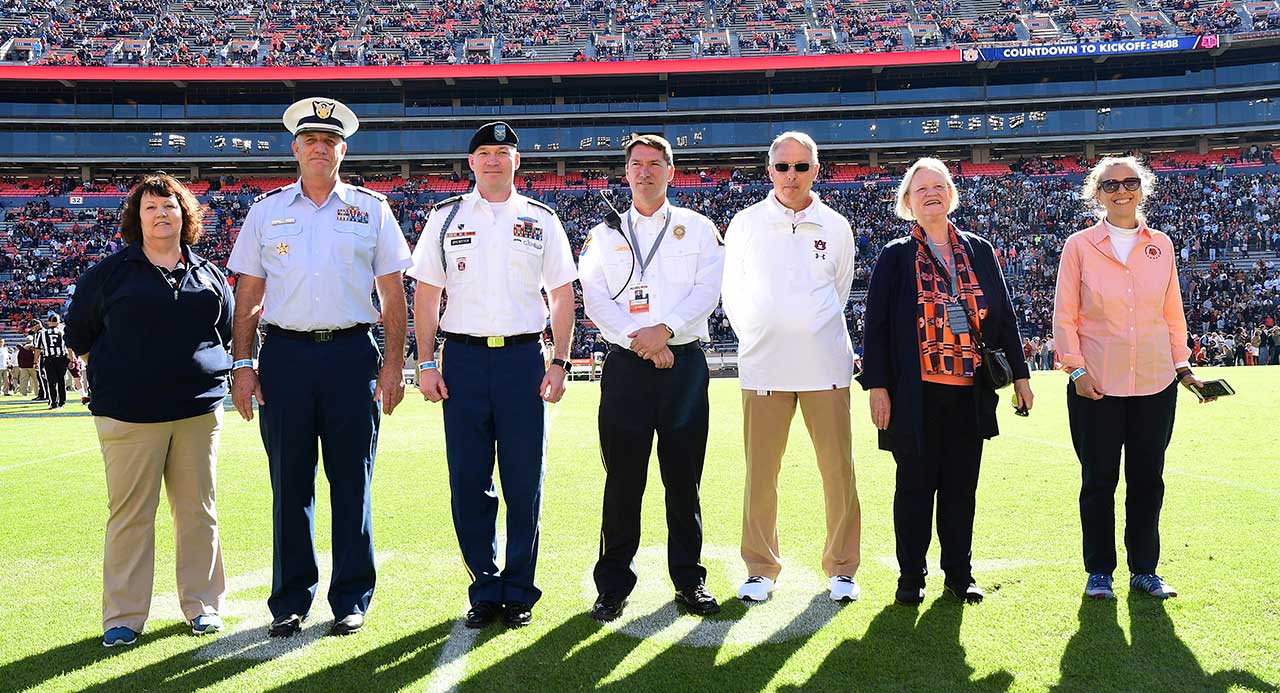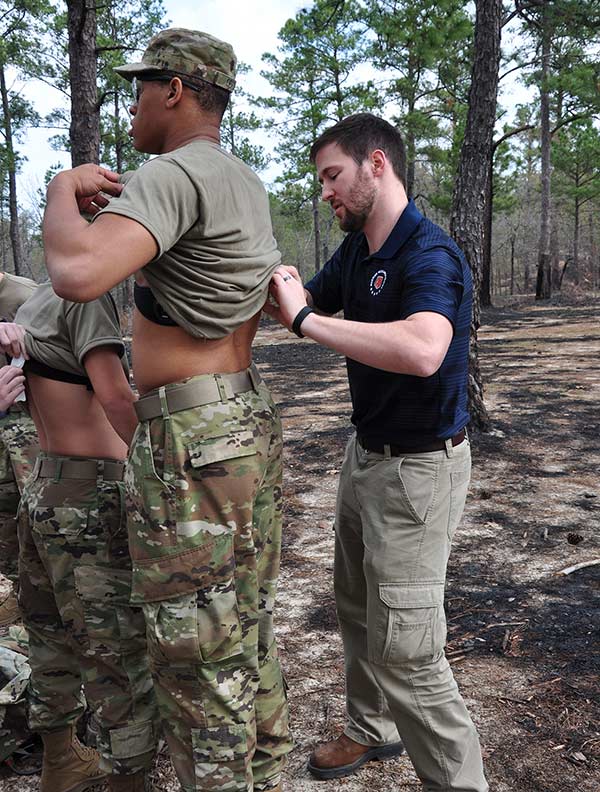Inspire Innovate Transform


2018 Academic Recognitions - Prior to each home game during the 2018 football season, Auburn University is recognizing on the field extraordinary Auburn programs and people who inspire, innovate and transform through life-changing research, industry partnerships, community outreach and an elevated student experience.
Auburn University’s Warrior Research Center is helping the men and women of the United States Armed Forces—as well as firefighters, police, and first responders—to maximize readiness and prevent injury through improved health and wellness, physical and technical performance, and vehicle and equipment design.
Few people outside of these demanding jobs realize the physiological stress these service members experience every day. They carry heavy equipment, engage in exhaustive physical activities, push the levels of human endurance, and face rapid waves of complex emotional and cognitive challenges.
The center, housed in the School of Kinesiology in the College of Education and directed by Professor JoEllen Sefton, works in conjunction with a variety of research disciplines from across campus to mitigate these impacts and prevent injury.
“Not only do we work to make our warriors better, faster, and stronger, but also look at ways clothing, equipment, and vehicles might be improved to lessen detrimental effects on their health,” Sefton said. “Injury prevention and long-term health is also a key focus of our research. We want our retired veterans to enjoy quality of life in the years following their service to our country and communities.”
As technology grows, warriors and first responders carry ever-increasing amounts of equipment. Such heavy loads have detrimental effects on the musculoskeletal system. For example, studies at the Warrior Research Center have shown that helmets and night vision goggles cause soldiers to lean their heads forward and to the right, putting strain on the muscles of the neck and shoulders. The center seeks first to determine the actual impact of equipment, and then to mitigate those impacts through scientifically tested interventions.
“These brave service members put everything on the line every day for all of us,” Sefton concluded. “It is an honor to support them through this important work being done at Auburn University.”
“In the case of the night vision goggles, we worked with Dr. Gretchen Oliver in Kinesiology to complete a biomechanical analysis of these forces on our warriors,” Sefton said. “We identified the stressors, forces, and directions, which were then entered into a computer program designed to model better equipment and recommend interventions that may improve performance and prevent future injury. This same research is applicable to firefighters wearing helmets and carrying heavy oxygen tanks. Whether it’s Marines, Coast Guard, Air Force, police, or EMTs, the effects are similar across the board. Our research is applicable to all of these tactical athletes.”

Warrior Research Center doctoral student Jeremy McAdam applies a physiological monitor on a soldier at Ft. Benning.
Another recent study by the Warrior Research Center involved soldier fueling. The goal was to look at protein supplementation for recruits at Ft. Benning, where 60,000 warriors engage in training every year. Evaluating soldier food intake and physical exertion (exercise) found that soldiers were not consuming enough fuel. The center found that improving soldier fueling improved performance and decreased injuries, and recommended specific nutritional interventions with more calories. This study was pivotal in the Army’s recent decision to provide more food to IET, or initial entry training, soldiers in the field and to allow them access to protein shakes and bars during training.
Working with researchers from engineering, psychology, pharmacy, nutrition, aviation, and many other areas across campus, the center brings together scholars to apply existing research and increase the amount of research being done to improve performance and decrease injury for these tactical athletes.
“These brave service members put everything on the line every day for all of us,” Sefton concluded. “It is an honor to support them through this important work being done at Auburn University.”
Learn more about Auburn’s impactful partnerships at www.auburn.edu/auburninspires.